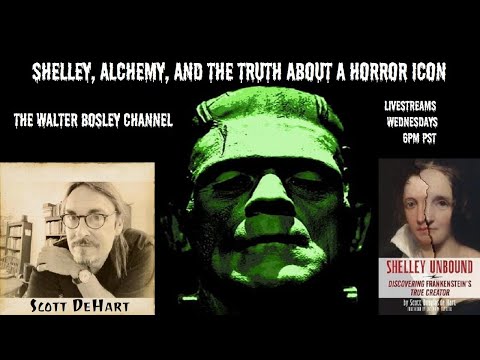I actually just bought this book along with some of JPF’s, but have not started it, and this interview has peaked my curiosity on the topic. I found this article that I thought was good at providing some background. Strange times.
Thank you for posting this interview. It was nice to see the author talking about his book and his ideas, and also how he sees “Frankenstein” as conveying a sad tale rather than what one considers horror in the entertainment realm.
I had never previously read “Frankenstein”, and when I purchased Shelley Unbound, I then purchased a copy of Frankenstein alongside, and then read both of them. Dr. de Hart makes a convincing case that “Frankenstein” is an autobiographical portrait of Shelley’s own life, and his book inspires me to want to dig deeper into Shelley’s works.
Because I had never read “Frankenstein”, I had previously assumed it was just an old horror story and didn’t give it much thought. Having read it now, I can appreciate that Shelley (Dr. de Hart’s idea, that it was Mr. instead of Mrs. Shelley who wrote the book, resonates with me) was writing about what was going on in the sciences, which informed the gruesome (and ongoing) experiments on humans and animals. I didn’t find that it was the horror story that one thinks about in the movies, but was, for me, the depiction of a deep personal (and at the same time societal) tragedy and also very disturbing picture of where the sciences were heading at that time (and where they have now landed).
It was Dr. de Hart’s book Shelley Unbound that inspired me to read Frankenstein, and I then also followed up by reading Dracula (another book I had never touched). Here, too, was a book that I felt was non-fiction, dressed up as fiction, that portrayed a serious social justice issue which presented the theme of children being snatched away to harvest their blood so that certain people could feel themselves rejuvenated. In Dracula, the author warned that if that practice was not nipped in the bud, it would spread far and wide. The concerns expressed in that book, through the guise of fiction, were prescient as to what is going on now, and I think that book is as important as Orwell’s 1984 or Huxley’s Brave New World in terms of following a thread of history back to some perverse ideas that shaped where our culture is at now. It’s one of these cases where an author felt he couldn’t talk openly about what was going on, and had to launch his concerns through some other creative way.
I’d be interested if anyone else has read Frankenstein and/or Shelley Unbound and any thoughts about those books.

